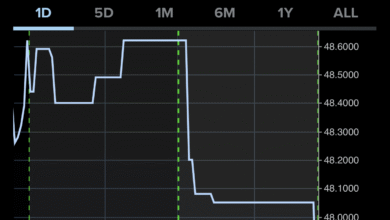Oregon Lawsuit Against Coinbase: A New Battle in Crypto

The recent Oregon lawsuit against Coinbase has drawn considerable attention, intensifying the ongoing discourse around cryptocurrency regulation in the United States. As it stands, this legal action embodies the complexities and challenges that digital asset platforms face while navigating regulatory frameworks. With the backdrop of the SEC’s retreat and Ripple’s legal triumph, Oregon’s Attorney General is asserting claims that Coinbase has violated state securities laws by selling unregistered crypto assets. This move raises critical questions about compliance and the enforcement of digital asset regulations, further complicating the landscape in which cryptocurrency companies operate. Coinbase’s leadership has challenged Oregon’s assertions, suggesting that they overlook pivotal legal developments in favor of a politicized narrative.
In the crux of ongoing legal battles within the crypto industry, Oregon’s latest legal action against the cryptocurrency exchange Coinbase highlights an escalating push for stricter oversight on digital currencies. By filing this complaint, the Oregon Attorney General seeks to address alleged violations related to crypto asset transactions that some regulators classify as unregistered securities. This lawsuit arrives on the heels of significant developments in the cryptocurrency sector, particularly with the SEC’s recent withdrawal of claims against Coinbase. As legal teams on both sides bolster their positions, the implications for consumer protection and compliance in the digital asset realm become increasingly pressing. The intricate interplay between state and federal regulations exemplified by this case underscores the growing need for clarity within the rapidly evolving landscape of cryptocurrency law.
Oregon Lawsuit Against Coinbase: A New Chapter in Crypto Regulation
The recent lawsuit filed by Oregon’s Attorney General against Coinbase marks a significant escalation in the regulatory landscape surrounding cryptocurrency exchanges. This legal initiative arises on the heels of the SEC’s withdrawal of claims against the platform, which reflects the increasing complexity and uncertainty in digital asset compliance. The Oregon lawsuit aims to challenge Coinbase’s practices under state securities laws, alleging that the exchange has facilitated the sale of unregistered securities. This shift towards state-level enforcement illustrates a growing trend where state authorities may take the lead in regulating cryptocurrency, potentially complicating compliance for digital asset platforms.
Coinbase has responded vigorously to the allegations, claiming that the Oregon AG’s complaint fails to consider the recent legal victories in the cryptocurrency sector, notably the XRP legal triumph. The state argues that Coinbase’s operational methods violate Oregon’s investor protection laws, but Coinbase counterclaims that these legal interpretations are politically motivated. This sphere of conflict highlights the intricate dynamics between state legislation and federal oversight, especially as the cryptocurrency industry seeks clarity in a rapidly evolving regulatory environment.
Legal Implications of the Oregon Attorney General Lawsuit
The implications of the Oregon Attorney General’s lawsuit against Coinbase extend beyond the immediate case at hand; they set a precedent for how digital asset exchanges may be scrutinized across various jurisdictions. The lawsuit underscores a fundamental tension between innovation in the cryptocurrency space and the need for regulatory compliance. The enforcement actions taken by the state could shape the legislative environment by establishing stricter guidelines for how digital assets are defined and regulated. This development raises critical questions about the future of cryptocurrency regulation in the United States, especially as more states may look to Oregon’s actions as a model for their regulatory frameworks.
Furthermore, the criticism of Coinbase’s use of arbitration clauses and class action waivers adds another layer of complexity. Oregon’s litigation aims to enhance consumer protections, which may resonate with other states considering similar regulatory measures. This focus on consumer rights signifies a shift towards a more demanding compliance landscape, compelling exchanges like Coinbase to reevaluate their policies to avoid similar challenges. The legal precedents set by the Oregon lawsuit could therefore have lasting implications, influencing not just Coinbase but the entire cryptocurrency ecosystem.
The Ripple Effect: How the XRP Legal Victory Influences Oregon’s Lawsuit
The legal victory achieved by Ripple in its case against the SEC has undoubtedly stirred conversations within the cryptocurrency community, including in Oregon’s lawsuit against Coinbase. Judge Torres’ ruling that XRP sales on public exchanges are not considered securities has set a powerful precedent that could undermine the basis of Oregon’s claims against Coinbase. Coinbase is likely to argue that, if XRP is not a security, then the classification and treatment of its digital assets should also be reconsidered. This contention poses a challenge to Oregon’s assertions, highlighting the potential inconsistencies in the regulatory approach adopted by different states.
As a result, the Oregon Attorney General’s lawsuit may not only impact Coinbase directly but also compel those involved in cryptocurrency regulation to establish clearer guidelines regarding what constitutes a security in the digital asset sphere. The outcomes of these legal battles, particularly in the wake of the Ripple victory, could define the contours of both state and federal regulations moving forward. It prompts a necessary dialogue concerning evolving compliance requirements in the cryptocurrency market, reflecting a demand for harmonization of laws governing digital transactions.
Coinbase’s Response: Legal and Strategic Considerations
Coinbase has taken a proactive stance in responding to the Oregon lawsuit, with Chief Legal Officer Paul Grewal highlighting significant oversights in the Attorney General’s claims. By arguing that the complaint overlooks key federal developments, especially pertaining to the SEC’s recent abdication of claims against the platform, Coinbase is positioning itself as a defender of not just its interests but also the broader cryptocurrency ecosystem. This strategy suggests that Coinbase aims to rally support from other players in the industry who may also feel targeted by aggressive state-level actions.
Moreover, the criticism of the lawsuit’s narrative is indicative of Coinbase’s effort to shift the conversation towards a more balanced understanding of cryptocurrency regulation. By reframing the lawsuit as politically motivated, Coinbase seeks to demonstrate that the regulatory environment can evolve through collaboration rather than confrontation. This strategic positioning may resonate with stakeholders who advocate for regulatory clarity that fosters innovation while ensuring consumer protection—a crucial dialogue as states like Oregon intensify their scrutiny of digital asset exchanges.
The Evolving Landscape of Cryptocurrency Regulation in the U.S.
The Oregon lawsuit against Coinbase signifies a pivotal moment in the evolution of cryptocurrency regulation in the United States. As states increasingly assert their authority over digital asset compliance, businesses operating in this arena must navigate a fragmented regulatory landscape that varies significantly from one state to another. The interplay between state and federal regulatory frameworks creates complexities that challenge the operations of exchanges and may lead to inconsistencies in how cryptocurrencies are classified and treated across the country.
Furthermore, the legal battles exemplified by the Oregon lawsuit highlight the necessity for a cohesive regulatory approach that addresses both state and federal interests. The recent shifts in SEC enforcement strategy, coupled with advancements in state-level regulations, underscore the importance of developing comprehensive guidelines that can adequately address the needs of consumers while fostering innovation in the cryptocurrency space. The dialogue surrounding these issues is crucial to establishing a sustainable and balanced regulatory framework that supports the growth of digital assets.
Consumer Protection and the Future of Digital Assets
Consumer protection stands at the forefront of the concerns raised in the Oregon lawsuit against Coinbase. The assertion that Coinbase’s user agreements limit consumer rights through arbitration clauses and class action waivers has ignited a broader discussion about the need for enhanced protections in the digital asset market. As states like Oregon take proactive measures to safeguard investors, it prompts other jurisdictions to reconsider their regulatory strategies to bolster consumer rights. Ensuring that end-users are protected from potential abuses is essential as the cryptocurrency market continues to grow rapidly.
Beyond immediate legal ramifications, the outcome of the Oregon lawsuit could catalyze a movement towards more standardized consumer protections across all states. Should Oregon succeed in enforcing stricter compliance measures, it may inspire other states to adopt similar legislative frameworks. This evolution could lead to a comprehensive regulatory landscape that prioritizes consumer security and builds trust in the cryptocurrency ecosystem, a necessary element for fostering widespread adoption of digital assets. As the regulatory landscape evolves, the balance between innovation and consumer safeguards remains critical.
Political Dynamics and Cryptocurrency Enforcement
The launch of the Oregon lawsuit against Coinbase is set against a backdrop of political dynamics that heavily influence regulatory enforcement in the cryptocurrency space. As the industry matures, the interplay between political narratives, public perception, and regulatory actions becomes increasingly apparent. The allegations of politicization in the Oregon AG’s claims reflect broader underlying tensions within governmental oversight of digital assets. Stakeholders in the cryptocurrency community may perceive a need to advocate for a more balanced approach that considers both regulatory necessities and the innovative potential of digital currencies.
Furthermore, as Coinbase and other exchanges navigate these politically charged waters, the response from industry leaders could shape future enforcement strategies. The evolving political discourse surrounding cryptocurrency regulation may determine the objectives of state attorneys general and influence how they prioritize actions against digital asset platforms. The Oregon lawsuit can serve as a bellwether for future state and federal regulatory relations, emphasizing the importance of collaboration over confrontation in achieving sustainable and effective compliance frameworks.
Looking Ahead: Potential Outcomes of Oregon’s Lawsuit
The potential outcomes of the Oregon lawsuit against Coinbase could reverberate throughout the cryptocurrency industry for years to come. Depending on how the case unfolds in the state courts, there could be implications not just for Coinbase but for the regulatory frameworks that govern the entire sector. A favorable ruling for Oregon could embolden other states to pursue similar actions, leading to a patchwork of regulations that exchanges must navigate. Conversely, a favorable outcome for Coinbase could signal a shift towards a more lenient federal approach to digital asset regulation, potentially affirming that some cryptocurrencies do not meet the threshold of securities.
As this case progresses, it will be essential for crypto stakeholders to remain vigilant and engaged. The legal principles established through this lawsuit will likely influence how cryptocurrencies are evaluated under state law, creating a roadmap for future regulatory measures. The conversation surrounding cryptocurrency regulation is bound to evolve, and the Oregon lawsuit might become a landmark case that helps define the intersection of innovation, compliance, and consumer protection in the digital era.
Frequently Asked Questions
What is the Oregon lawsuit against Coinbase about?
The Oregon lawsuit against Coinbase, filed by the Oregon Attorney General, accuses the cryptocurrency exchange of violating state securities laws by facilitating the sale of unregistered securities. The lawsuit also challenges Coinbase’s use of arbitration clauses and class action waivers that limit consumer protections.
How does the Oregon lawsuit against Coinbase relate to the SEC’s retreat?
The Oregon lawsuit against Coinbase comes shortly after the SEC withdrew its federal lawsuit against the exchange. While the SEC did not address the validity of its allegations, the Oregon Attorney General’s lawsuit aims to highlight Coinbase’s alleged noncompliance with state securities regulations.
What impact does the XRP legal victory have on the Oregon lawsuit against Coinbase?
The XRP legal victory, where a judge ruled that XRP sales did not constitute securities, may influence the Oregon lawsuit against Coinbase by casting doubt on similar regulatory allegations. Coinbase’s legal defense is likely to draw parallels to this ruling to support their argument against the state’s claims.
Why did Coinbase’s Chief Legal Officer criticize the Oregon Attorney General’s lawsuit?
Coinbase’s Chief Legal Officer, Paul Grewal, criticized the Oregon lawsuit for ignoring key legal developments, including the SEC’s recent losses and XRP’s victory. He argued that the lawsuit appears to be politically motivated and driven by opportunism rather than solid legal principles.
What are the implications of the Oregon lawsuit for cryptocurrency regulation?
The Oregon lawsuit against Coinbase underscores the ongoing regulatory challenges in the cryptocurrency sector and highlights state-level enforcement actions amid a shifting federal landscape. It could lead to stricter oversight of digital asset compliance and influence how other states approach cryptocurrency regulation.
| Key Points | Details |
|---|---|
| Oregon Lawsuit Against Coinbase | Oregon’s Attorney General has filed a lawsuit against Coinbase, citing violations of state securities laws. |
| SEC Withdrawal | The SEC recently withdrew its claims against Coinbase, leaving some regulatory questions unresolved. |
| Coinbase’s Response | Coinbase’s Chief Legal Officer claimed the Oregon lawsuit disregards recent federal rulings and is politically motivated. |
| Legal Developments | Coinbase has been granted an interlocutory appeal in its case against the SEC that could redefine its categorization of digital asset transactions. |
| Consumer Protection Concerns | The Oregon lawsuit addresses the use of arbitration clauses and class waivers in user agreements that limit consumer rights. |
Summary
The Oregon lawsuit against Coinbase marks a significant escalation in the ongoing regulatory battle surrounding cryptocurrency exchanges. As Oregon’s Attorney General takes legal action, including allegations of unregistered security violations, Coinbase defends its position by pointing to recent victories in federal court, particularly concerning the SEC’s retreat. This case highlights the complexities and contentious nature of cryptocurrency regulation as states assert authority in the face of shifting federal oversight.




